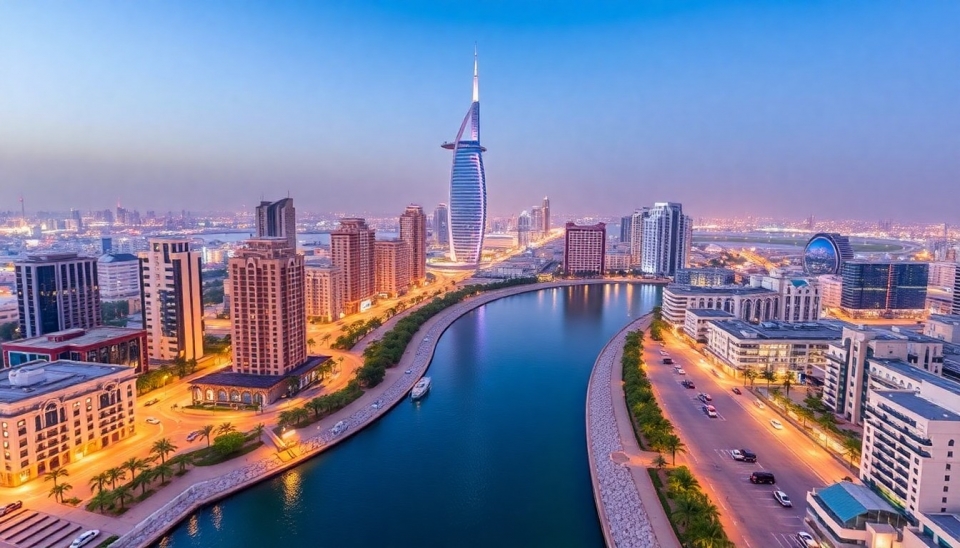
In a significant turn of events for Dubai's once-booming property market, recent reports indicate that the sector is starting to experience pressure as oil prices decline along with rising concerns over international trade tariffs spearheaded by the Trump administration. This shift poses a dual threat to the real estate market, which has been a cornerstone of Dubai's rapidly growing economy.
The current state of oil prices, which directly influences investment flows in the region, has been marked by volatility, causing uncertainty among potential buyers and investors. Many analysts point to the GCC (Gulf Cooperation Council) states' reliance on oil revenues, suggesting that as oil prices drop, so too does the economic confidence of investors looking to commit to high-value property investments in Dubai. The knock-on effects are beginning to be felt throughout the market as developers scramble to adjust their strategies amid this changing landscape.
Compounded by these challenges, the international tariff disputes, particularly the escalating tariffs introduced by the Trump administration, are driving up costs for materials and impacting the overall investment environment. The fallout from trade tensions has made it increasingly difficult for construction firms to predict costs accurately, leading to project delays and shifting timelines that frustrate buyers eagerly awaiting new developments.
Amid these pressing issues, analysts and real estate experts are voicing concerns that the trend of luxury property consumption, heavily fueled by international investors, might be at risk. High-end developments, which have flourished in recent years, are now being scrutinized as potential buyers weigh the increased economic risks against their planned luxury expenditures. Houses and apartments that once drew multimillion-dollar offers are now seeing price corrections as buyers look for bargains amid stagnation.
Some developers are attempting to mitigate these risks by diversifying their portfolios and making strategic investments in less expensive housing options. However, the overall outlook in the short term remains cautious, with many in the industry urging for strategic collaboration among stakeholders to keep the market buoyant. Potential homebuyers who were previously eager to invest now approach with hesitance, further blurring the picture for future growth.
As Dubai continues to navigate these emerging issues, the hope is that innovative policies and joint efforts will rejuvenate the property sector and restore confidence among buyers, investors, and developers alike. Nonetheless, the current landscape serves as a reminder of the interconnectedness of local real estate markets to global commodities and trade relations.
In conclusion, while challenges loom large over Dubai's property sector, the resilience of the city’s economy and its ongoing draw for expatriates and international investors will be crucial in determining the trajectory of the market in the coming months.
#DubaiPropertyMarket #OilPrices #TrumpTariffs #RealEstateTrends #InvestmentChallenges #GulfEconomy #LuxuryRealEstate #EconomicOutlook
Author: John Miller




